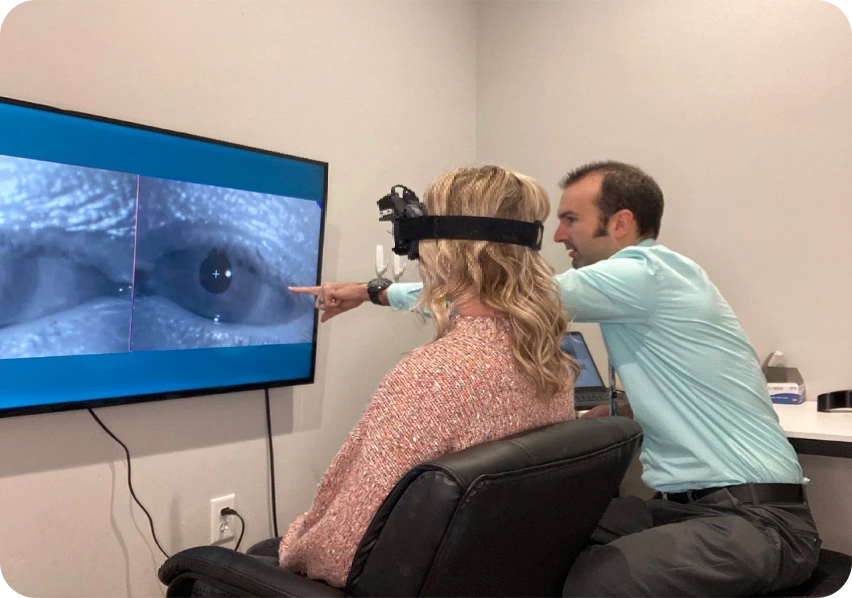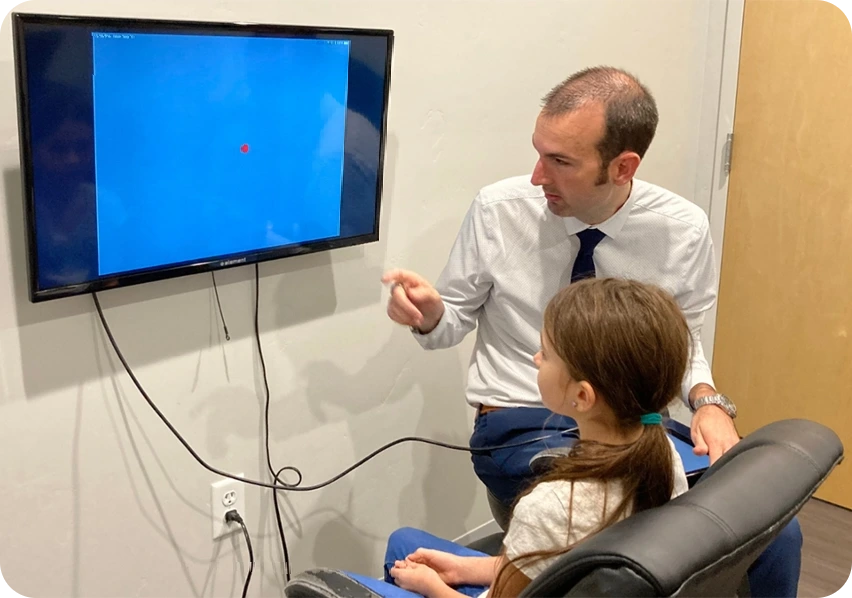Post-Concussion Syndrome Recovery Treatments
Peak Brain and Body is the leading post-concussion syndrome treatment provider in Wesley Chapel and greater Tampa Florida. We are going to review what Dr. Zimmerman has learned over the past 12 years of helping individuals with post concussion syndrome recovery.
If you are reading this then you are either dealing with ongoing concussion symptoms, have a loved one struggling, or are wondering if this may explain why you feel the way you do. So, what exactly is post-concussion syndrome?
Post-concussion syndrome is a term used to describe when an individual continues to have ongoing symptoms beyond 3 months after a concussion occurred. What are symptoms that someone often experiences with post-concussion syndrome, you don’t need all of these to meet criteria.
Post-Concussion Syndrome Treatment
If you are reading this then you are either dealing with ongoing concussion symptoms, have a loved one struggling, or are wondering if this may explain why you feel the way you do. So, what exactly is post-concussion syndrome? Post-concussion syndrome is a term used to describe when an individual continues to have ongoing symptoms beyond 3 months after a concussion occurred. What are symptoms that someone often experiences with post-concussion syndrome, you don’t need all of these to meet criteria.
-
- Headache
-
- Brain Fog
-
- Fatigue
-
- Mood Changes
-
- Depression
-
- Blurry Vision
- Dizziness
- Light Sensitivity
- Noise Sensitivity
- Insomnia
- Poor Concentration
- Problems Finding Words
- Migraines
- Anxiety
- Forgetfulness
- Balance Issues
Yes, it is common to have many of these symptoms and not just one or two. No you aren’t crazy, it isn’t just a mental health issue, and post concussion syndrome recovery IS possible.
Post-Concussion Syndrome Myths
Have you been told:
-
- Your symptoms will go away on their own
-
- Your imaging is normal and nothing is wrong
-
- You are depressed or anxious, not dealing with a concussion
-
- Concussions don’t last that long
-
- There is nothing you can do
If so, know that you are not alone. Each year millions of concussions occur in the United States and the reported numbers are far below what actually occurs due to individuals not seeking care or the diagnosis is missed. Research suggests that nearly 50% of those diagnosed in a hospital setting will continue to have symptoms a year later. This is much different than the initial thought of 5-10%.
It’s not simply the fact that you haven’t recovered, but it’s the lack of understanding from providers, family, friends, and co-workers that is really frustrating as it changes what gets the focus.
This leads to many thinking their concussion is no longer impacting them and they set on a quest to treat their symptoms instead of actual post concussion syndrome recovery. The problem is, treating a symptom is just that. It is a symptom, it doesn’t address the underlying reason for why the symptom is there to begin with.
We are going to first discuss some of the things that happen in the brain following a concussion. After that we will discuss different treatment options that one should consider.
What Does A Concussion Do To The Brain?
Research over the years has given us tremendous insight into what happens in the brain following a concussion. These changes can persist for months and years following the injury.
-
- Inflammation
-
- Energy
-
- Blood Flow and Oxygen Changes
-
- Connections
Treatments For Post-Concussion Syndrome
There are many treatments or therapies for post concussion syndrome recovery that can be performed and this isn’t meant to be an all inclusive list.
Vestibular Therapy
When someone hears the term vestibular system they often think of the inner ear crystals, but this ignores much of what the vestibular system actually does. This system integrates information from the inner ears, central vestibular relay stations, cervical spine, and eye movements. When these work together appropriately you can function, but when they don’t you end up with a variety of symptoms.

